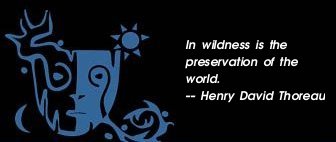
Poetry for Winter
Introduction by Mary Davis
Mythic Passages Editor
Dictionaries describe poems and poetry as the use of words "... to convey a vivid and imaginative
sense of experience..." using "...condensed language chosen for its sound and suggestive power as well
as its meaning." Poems often use literary techniques such as "...structured meter, natural cadences,
rhyme, or metaphor." This American Heritage Dictionary definition goes on to mention lyrical
beauty and intensity as aspects of poetry. Encarta also has an interesting discussion of poetry,
and Wikipedia's very thorough entry on poetry
has many links to other resources. As Wikipedia notes, the root word for poem is the Greek verb, poieo:
I make, I create. Wikipedia also reminds us that in his Poetics, Aristotle stated , "...the greatest thing by
far is to be a master of metaphor."
I know when I encounter the poetic because the words go straight to my heart. I feel the words.
Poetry and myth are close cousins, both deeply connected to human emotions and to the use of metaphor,
often healing, helping bring wholeness to the individual and the collective psyche.
This Midwinter issue includes several wintry poems which I have chosen. These three are by local Atlanta poets,
and they are followed by several selections from a volume whose authors combine memoir and haiku. In addition,
I recommend Mary Oliver's poems, especially "Ice," "Wolf Moon," and "Winter in the Country," in her New and
Selected Poems.
From Drawn by the Creek
Poems by Robert M. Giannetti
Winter Fire
A fire swept over the meadow
in a sudden gust of wind
that whipped up before noon
on a warm day in winter.
It left a gritty, grey layer
Of coarse dust that stirred
now and then, suggesting
the feathery birth that
would arise in the spring
from this ashen clearing,
enriched by the death
of grasses and brambles.
Anxiety
Anxiety is a house
in the cold, holding warmth but
surrounded by the old bite seeking bone,
huddled, peering out
through fogged windows,
hoping the fuel lasts,
the roof holds and that
it will be possible
to stand in the sun once more.
Born in 1942, Robert Giannetti has worked in business and in education, and lived in both urban
and rural areas. He is a former Army officer, college teacher and administrator, foundation executive,
and managing partner of a human resources consulting firm. Attaining a Ph. D. in English Renaissance
literature, he ultimately spent a large part of his life applying his liberal education to very practical
ends in business and civic endeavors. Giannetti says that writing is the unifying force in his life.
These poems are copyrighted material and are reproduced with the permission of the author. They may
not be reproduced without such permission. Drawn By The Creek is published by Cashes Valley Publishing,
Atlanta, 2003.
From The Chinaberry Tree and other Poems
By R. Cary Bynum
Wintry Field
There above, two chimney swifts
Blown high by winter winds,
Soaring, slicing with stiff wings
Airy pockets wherein caught,
Celestial playmates in gray vastness.
Evening comes with pale solemnity,
Touched by pink powder
Sailing a western sky in patches.
I come upon the open field,
Its summer stalks deadened
By a deeply frigid bite.
No warmth for flowing blood
In the tangled thicket,
No slope to stave off
The bark-pealing cold,
And no life, except for the boy
In green-knit cap who sits
Upon thistled carpet studying
The field and distant divers.
He listens for the stirring
Of a vernal pulse.
At home in nature's bad time,
And even unbothered
By this needle-sharp wind
That turns my face due east.
His home is somewhere there,
That string of wood-framed houses,
A whiff of burning logs, pine smoke,
Familiar womb of warmth
Where waits a healing,
Rapturous thaw of the soul.
And still the boy sits,
His eyes upon the thicket,
Seeing into the mystery
Of nature's frozen solstice.
Does he wonder how this sleep
That so resembles death
Can awaken itself into
Something so eternally confident
As summer?
Across the field scrambles
His little scrub of a dog, which
Gets the boy's blood rushing,
Arms in plaid coat pumping,
As together they leap
A small earthen crevice
And vanish against the backdrop
Of burnished brown
Beyond the wintry field.
R. Cary Bynum is a playwright and poet. A former publisher, he lives in Atlanta with his wife,
actor/director Brenda Bynum. His published works include Cabbagetown: 3 Women and Six Short Plays.
This poem is copyrighted material and is reproduced with the permission of the author. It may not
be reproduced without such permission. The Chinaberry Tree is published by St. Johann Press,
Haworth, N.J.,2002.
Return to Passages Menu
Subscribe to the Passages e-newsletter
|

